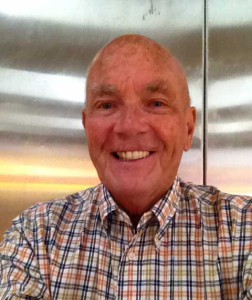By Gerald K. McOscar
Contrary to what some scientists and politicians profess, one need not look far to see that science is rarely settled and that much of yesterday’s “science” is today’s old wives’ tale.
In June, the Philadelphia Inquirer reported on the case of Han Tak Lee who nearly 25 years ago was convicted of the July 1989 arson murder of his 20-year-old daughter Ji Yun Lee at a church camp near Stroudsburg.
He had brought her from New York in the hope of healing her severe manic depression.
Since then once ironclad evidence of arson — burn-pattern analysis, “crazed glass,” for instance — has been debunked.
In May, fire investigation expert, John J. Lentini, persuaded a federal magistrate judge in Harrisburg that new tests of the evidence combined with an admission by prosecutors that expert opinions on the cause and origin of the fire were based more on superstition than science denied Lee a fair trial.
The judge has recommended that Mr. Lee, now 79, be retried or released. A district court judge could rule on the recommendation soon.
Shaken Baby Syndrome (SBS) is another example of evolving “settled” science.
SBS was coined in the early 1970s to describe what adherents contend is a characteristic set of head injuries found in infants in which violent shaking causes the brain to move inside the skull, causing bruising of the brain and tearing of blood vessels but who exhibit no visible signs of abuse.
Some in the scientific and legal communities are reexamining that theory.
The December, 2011, American Bar Association Journal cited a growing chorus of forensic experts that “the entire theory rests on an uncertain scientific footing that continues to erode under the weight of scientific scrutiny, raising the specter that hundreds if not thousands of innocent people……..have faced (prosecution) for crimes they may not have committed.”
The article highlighted a Wisconsin woman convicted fifteen years earlier of the 1995 shaking death of an infant neighbor.
In 2008 a Wisconsin appeals court granted her a new trial on the grounds that a shift in mainstream medical opinion (i.e., that other causes may mimic the symptoms traditionally associated with SBS) cast doubt on her guilt.
Prosecutors later dismissed the case.
I once represented a father in a SBS case brought by Chester County’s Department of Children, Youth and Family in which the child began experiencing severe breathing difficulties immediately after returning to father from a weekend with relatives during which he suffered severe constipation.
The court adopted the pediatrician’s opinion that the symptoms were caused by father’s violent shaking and not a delayed reaction to trauma inflicted elsewhere or to the child’s labored efforts to have a bowel movement over the weekend.
I remain unconvinced.
I am convinced however that my now well-settled opinion that “settled science” is an oxymoron is not about to evolve.
Gerald K. McOscar is a West Chester based attorney.








In the Monroe County arson case involving Han Tak Lee, the federal judge did issue his ruling Friday, 8/8/14, and approved the Magistrate Judge’s report and recommendation to vacate the 24-year-old conviction. http://articles.philly.com/2014-08-09/news/52624599_1_han-tak-lee-old-arson-cases-bradley-schmidt .
I would suggest to Mr McOscar that a proper scientist would not use the term “settled science”. It is a phrase used almost exclusively by non-scientists. Most scientists will instead talk in terms of probabilties. Much of science is based on correlations made with the accumulation of data based on observation; however, correlation does not imply causation and understanding improves over time.
Politicians are particularly fond of using “settled science” because it is difficult for them to talk about probability with constituents. For example, there is overwhelming scientific evidence (observed and modeled) to indicate a very high probability that the activities of humanity are changing the climate. But that doesn’t make for a good soundbite, so politicians try to dumb it down with “settled science” statements.